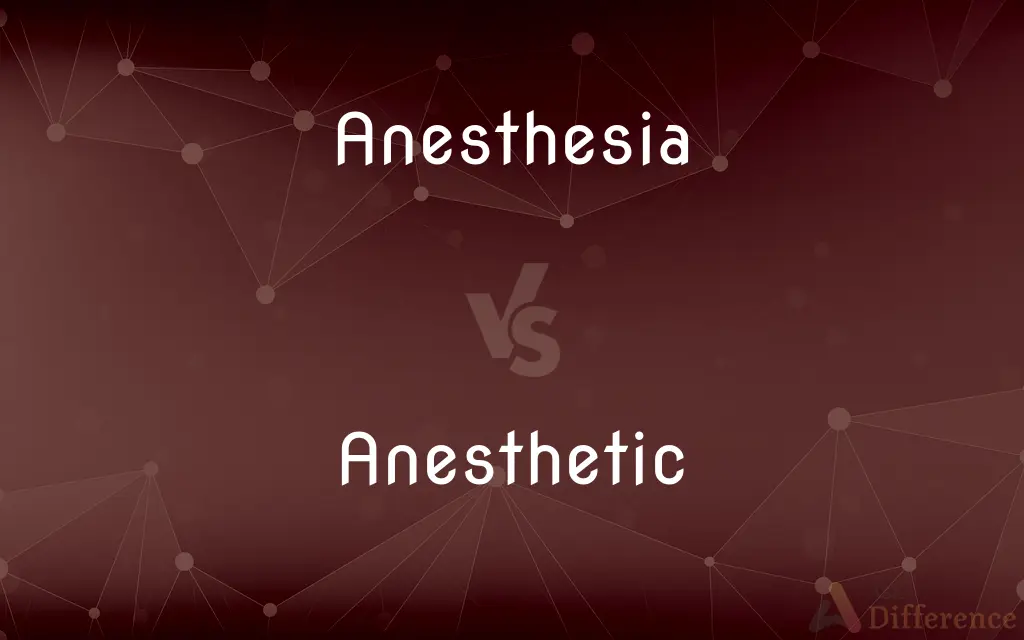Anesthesia vs. Anesthetic — What's the Difference?

Difference Between Anesthesia and Anesthetic
ADVERTISEMENT
Compare with Definitions
Anesthesia
Anesthesia is a state of controlled, temporary loss of sensation or awareness that is induced for medical purposes. It may include some or all of analgesia (relief from or prevention of pain), paralysis (muscle relaxation), amnesia (loss of memory), and unconsciousness.
Anesthetic
An anesthetic (American English) or anaesthetic (British English; see spelling differences) is a drug used to induce anesthesia — in other words, to result in a temporary loss of sensation or awareness. They may be divided into two broad classes: general anesthetics, which result in a reversible loss of consciousness, and local anesthetics, which cause a reversible loss of sensation for a limited region of the body without necessarily affecting consciousness.A wide variety of drugs are used in modern anesthetic practice.
Anesthesia
Total or partial loss of sensation, especially tactile sensibility, induced by disease, injury, acupuncture, or an anesthetic, such as chloroform or nitrous oxide.
Anesthetic
Relating to or resembling anesthesia.
Anesthesia
Local or general insensibility to pain with or without the loss of consciousness, induced by an anesthetic.
ADVERTISEMENT
Anesthetic
Causing anesthesia.
Anesthesia
Medication that induces partial or total loss of sensation and may be topical, local, regional, or general, depending on the method of administration and area of the body affected.
Anesthetic
Insensitive.
Anesthesia
(medicine)An artificial method of preventing sensation, used to eliminate pain without causing loss of vital functions, by the administration of one or more agents which block pain impulses before transmitted to the brain.
Anesthetic
An agent that causes loss of sensation with or without the loss of consciousness.
Anesthesia
(American spelling) The loss or prevention of sensation, as caused by anesthesia (in the above sense), or by a lesion in the nervous system, or by another physical abnormality.
Anesthetic
Something likened to this in effect
For some people watching television is an anesthetic for the mind.
Anesthesia
A substance administered to reduce the perception of pain or to induce numbness for surgery and may render the recipient unconscious.
Anesthetic
Causing anesthesia; reducing pain sensitivity.
Anesthesia
Same as Anæsthesia, Anæsthetic.
Anesthetic
Insensate: unable to feel, or unconscious. improve!
Anesthesia
Loss of bodily sensation with or without loss of consciousness
Anesthetic
A substance administered to reduce the perception of pain or to induce numbness for surgery and may render the recipient unconscious.
Anesthetic
A drug that causes temporary loss of bodily sensations
Anesthetic
Characterized by insensibility;
The young girls are in a state of possession--blind and deaf and anesthetic
An anesthetic state
Share Your Discovery

Previous Comparison
Flatbread vs. Pizza
Next Comparison
Ought vs. Zero













































